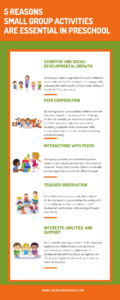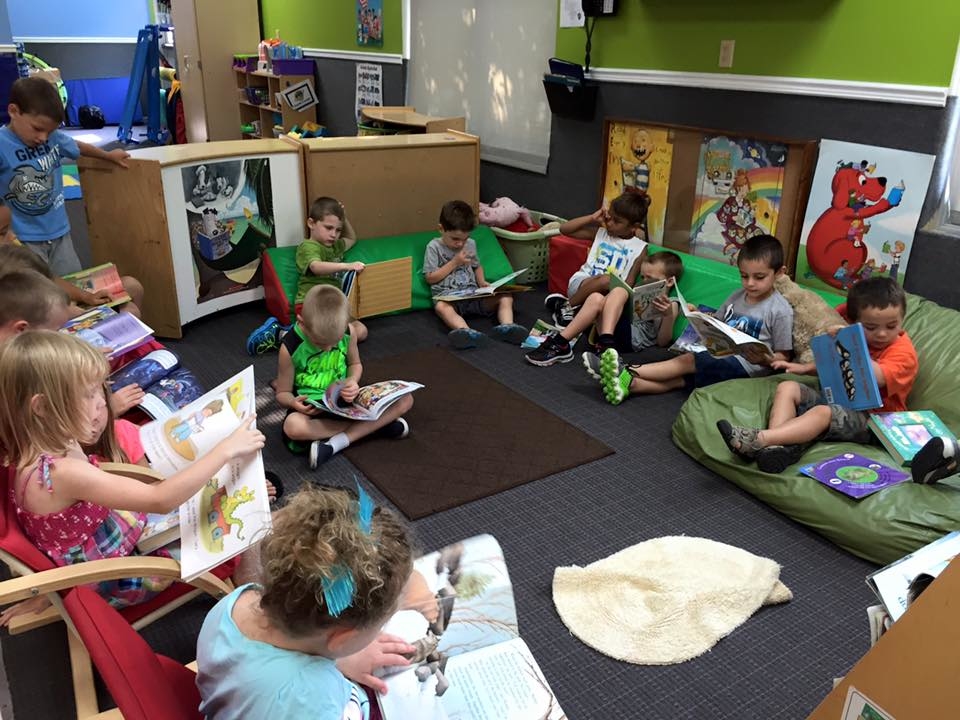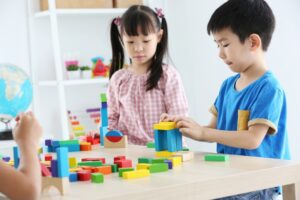The reasons to send your child to preschool are plentiful but most likely, the top of your list includes encouraging your child’s cognitive and social development. Small group activities are one of the most important ways preschool can help children develop.
In preschool, small group activities, instead of free play or engaging with the whole class, are typically multiple learning stations in the classroom featuring fun and engaging learning activities suited for five to six children. Some of the most notable benefits of small group activities in preschool include:
- Cognitive and social developmental growth
- Peer cooperation
- Interaction with peers
- Teacher observation
- Interest, abilities, and support
Cognitive and Social Development in Small Group Activities
Children are still very young in preschool, and they are still very much developing socially and cognitively. Most children function best in a small group environment, as they are less overwhelmed by all the children and all the things to explore.
Small group activities create a more approachable way for all children to interact with one another and the teacher. These activities present an opportunity for preschoolers to use language skills to interact and accomplish a task with their peers.
Peer Cooperation in Small Group Activities
By working in small group activities, children work with their peers towards a common goal. Preschool-age children will inevitably run into hurdles working with each other. By overcoming these bumps with the teacher’s help, they will be developing cooperation skills, conversation skills, learning how to work as a team, and work on sharing and compromising.
Interaction with Peers in Small Group Activities
Preschoolers sometimes struggle with making friends, but children are encouraged to play and interact with kids whom they do not typically interact with by working in small groups. This structured interaction creates a more inclusive environment in the preschool classroom and further encourages children’s social skills by encouraging them to work with different people.
Teacher Observation in Small Group Activities
Preschool teachers are more easily able to observe children during small group activities. By working with each small group, teachers can observe a child’s development and behavior while working with peers more closely. This observation allows for better fine-tuning and adjusting an individual’s preschool education to best support them in their unique needs.
Encouraging Children’s Interest, Abilities, and Offering Support in Small Group Activities
By strategically separating preschool children by groups, teachers can allow children to do an activity they’re particularly interested in – trains and transportation, for example. Or, children who are developmentally lagging can be paired together and offered the most support. On the flip side, more advanced children can be together so everyone can receive the support they need.
Small Group Activities at Breakie Bunch
Small group activities are essential to our preschool curriculum at Breakie Bunch because of the plentiful benefits they offer.
By breaking our preschoolers into small groups, we can better observe and encourage children to develop in many ways, most notably socially and cognitively. For more on your preschooler’s development, check out our blog series on developmental milestones for preschoolers.


